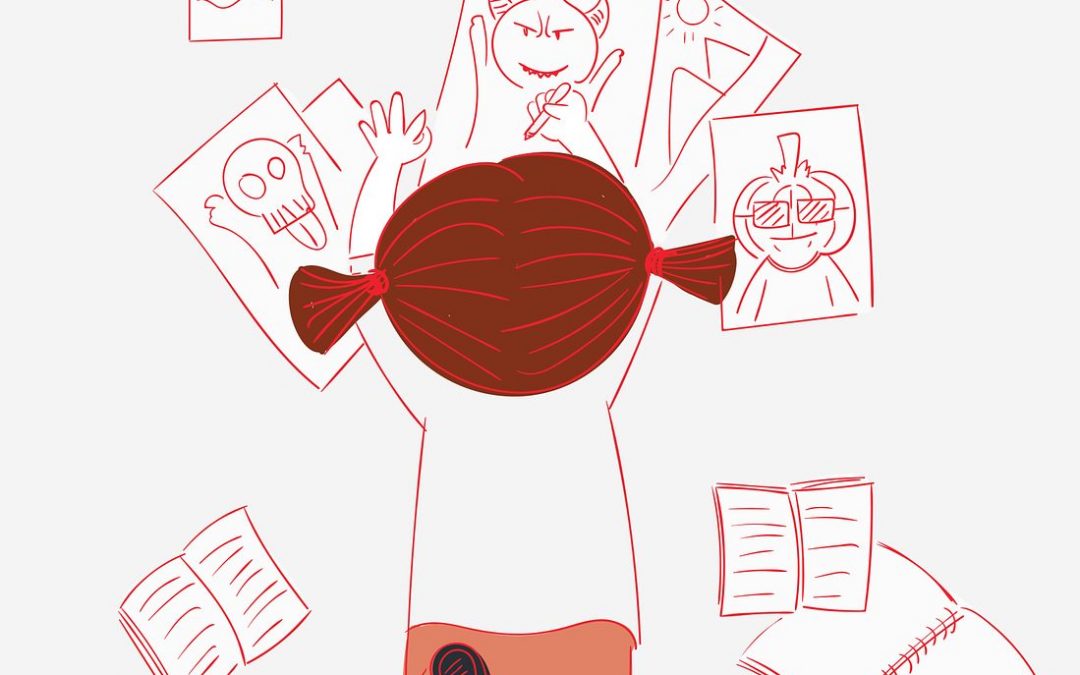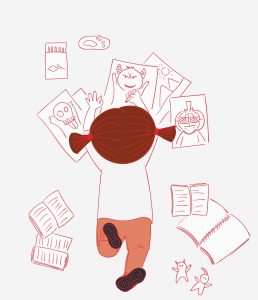In the realm of creativity and self-expression, the journey of an artist is one that’s in a perpetual state of evolution. Whether you’re a beginner seeking to nurture your budding talents or an experienced artist aiming to refine your skills, there are timeless pieces of advice that can expertly guide you along this captivating artistic expedition. In this discourse, we delve into some of the most invaluable insights that can empower you to elevate your art skills to unprecedented heights.
1. Embrace Consistent Practice:
At the core of artistic improvement lies the simple yet profound practice of creating art on a consistent basis. Just as a musician refines their skills by engaging with their instrument daily, artists must flex their creative muscles regularly. It’s crucial to carve out dedicated time for art creation, whether it involves drawing, painting, sculpting, or any other chosen medium. Consistency not only aids in the refinement of technical skills but also fosters a profound and enduring connection with your unique creative process.
2. Master Fundamentals:
Similar to constructing a sturdy building on a solid foundation, mastering the fundamentals is a pivotal step toward becoming a proficient artist. Grasping the basics of anatomy, perspective, color theory, and composition is essential. These fundamental concepts serve as the essential building blocks upon which you can meticulously construct your artistic vision. Continuously revisiting and refining your grasp of these core principles will empower you to confidently take on complex projects.
3. Embrace Failure as Growth:
Artistic growth frequently takes root in the aftermath of failure. Instead of being disheartened by mistakes, seize them as invaluable learning opportunities. Every seemingly “failed” artwork imparts a valuable lesson about technique, design, or even your personal creative inclinations. Echoing the words of the legendary artist Pablo Picasso, “I am always doing that which I cannot do, in order that I may learn how to do it.”
4. Seek Constructive Criticism:
Insights from others can offer fresh perspectives and insights that you might not have previously considered. Sharing your work with peers, mentors, or online communities open to providing constructive criticism can be incredibly enlightening. Be receptive to suggestions and critiques, while also mastering the art of filtering feedback to align with your unique artistic vision. It’s important to remember that the objective isn’t to cater to every individual’s preferences but to refine your skills and expand your creative horizons.
5. Explore Diverse Styles and Mediums:
While mastering a particular style or medium is commendable, exploring diverse approaches can lead to unexpected breakthroughs. Experimenting with different styles, techniques, and mediums has the potential to push your creative boundaries. The cross-pollination of ideas from disparate artistic realms can breathe new vitality into your work, facilitating the discovery of distinctive artistic voices.
6. Learn from the Masters:
Gaining insights from the works of renowned artists is a treasure trove of wisdom. Scrutinize the techniques, brushstrokes, color palettes, and compositions employed by these masterful creators. It’s crucial to note that this isn’t an endorsement of duplicating their work, but rather a recommendation to comprehend the principles they employed and adapt them to your individual style. While physical visits to museums and galleries provide opportunities for up-close art appreciation, a plethora of online resources and art history books are also at your disposal.
7. Cultivate Patience and Persistence:
The trajectory of artistic progress seldom adheres to a linear path. Cultivating patience with yourself and persevering through moments of frustration or creative blockage is essential. Overnight success is a rarity in the world of art; most artists achieve excellence through years of dedicated effort. Uphold your commitment to your craft, and remember that the expedition itself is as rewarding as reaching the destination.
 8. Keep a Sketchbook:
8. Keep a Sketchbook:
A sketchbook is a sanctuary for creative thoughts, doodles, and experiments. It provides a realm where ideas can materialize without the weight of creating a polished final product. Regularly engaging in sketching within your sketchbook not only chronicles your artistic journey but also allows you to track progress and cultivate concepts that might eventually evolve into larger undertakings.
9. Strike a Harmonious Balance between Self-Discipline and Playfulness:
While discipline is a cornerstone of skill development, affording yourself the freedom to play and explore without stringent goals can be immensely advantageous. At times, the most unforeseen and enchanting creations emerge when you’re simply enjoying the act of creating. Balancing structured practice with creative play nurtures a comprehensive approach to fostering artistic growth.
10. Place Your Trust in the Creative Process:
Art is an inherently personal journey, with each artist charting a unique path. Placing trust in your creative process and having faith in your intuition are vital elements. While seeking advice and drawing inspiration from others is beneficial, your artistic voice is the distinguishing factor. Embrace your individuality, allowing your artwork to become a genuine reflection of your emotions, experiences, and distinctive perspective.
In the realm of art, the concept of an ultimate destination is absent—what remains is an ongoing odyssey of self-discovery and development. By wholeheartedly embracing consistent practice, gleaning wisdom from the accomplished, and striking a harmonious equilibrium between discipline and play, you’ll find yourself well on your way to enriching your artistic prowess. Bear in mind, the allure of art lies not solely in the completed masterpiece but equally in the transformative journey of creation.


 8. Keep a Sketchbook:
8. Keep a Sketchbook:
Recent Comments